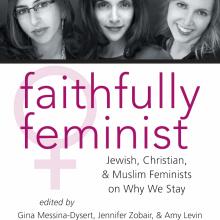cynicism

Image via Grischa Georgiew / Shutterstock.com
Even though the Great Recession officially ended in 2009, 72 percent of Americans believe that the U.S. is still in recession, a figure unchanged from 2014. While that figure has remained steady, this year has seen a dramatic spike of discontent regarding economic inequality. Over the past four years, only slight majorities (53 to 55 percent) have agreed that “One of the big problems in this country is that we don’t give everyone an equal chance in life.” But in 2015, 65 percent of Americans agreed.
And Republicans and Democrats overwhelmingly agree, at least on this: The federal government is looking out for the rich. The American Dream, seemingly in question since the Great Recession, is now only an idle daydream for most.
And as Americans give up on the American Dream, they grow more suspicious of immigrants. In 2012, 57 percent of Americans believed that immigrants strengthened the U.S. That number has now, dangerously, fallen below a majority, to 46 percent. And it has gotten personal — more people report being bothered when they encounter non-English speakers.

Image via danielo / Shutterstock
When literary critic Steve Moore praised the novel Infinite Jest for its “sardonic worldview perfect for the irony-filled nineties,” the exasperated author, David Foster Wallace, replied that that was “like saying a ‘kerosen[e]-filled fire extinguisher perfect for the blazing housefire.’”
The ’90s may be over, but the scorching irony of our sardonic age shows no sign of dying out as David Foster Wallace may have hoped.
That we still need writers — and artists, thinkers, and plain old human beings — putting out fires of cynicism is clear enough to me. Not because I hate it. The problem is that I love being the cynic.

Book cover via Christy Collins / RNS
Why stay when a woman can’t be ordained as a priest? When Jewish men in their daily prayers thank God they were not born a woman? When a woman with uncovered hair is considered a bad Muslim?
Many in this diverse group of essayists — including Mormons, immigrants, rabbis, ministers, lawyers, and nurses — confess to having seriously considered chucking faith, or at least their own religious tradition. Some of them actually did leave, only to return.
It’s the season of hope.
We rely on hope as a force to inch us forward. No one wants to believe that our best days as individuals or as societies are behind us. Everyone wants to be a hopeful person. Or, at least, there are plenty of people out there eager to make sure everyone feels hopeful.
It’s a season when we’re urged to look for things — data, leaders, movements, promises, trends, exemplars — to provide the ground for hope. For others, it’s a time for sarcasm and mockery.
I think what turned me off the most was the hair. It was just so ... big. And the scrappy “don’t mess with Texas” vibe. And the fact that evangelical moms all over the country were fans. As a third generation New Yorker, cynicism and snark have been bred into me, along with an affinity for black clothing and pretentious coffee. So it has surprised everyone — including me — that I have spent the past year going through (and recommending) Beth Moore studies.
How did it happen? Well, I moved from my hometown of New York City to Washington, D.C., and while I was exploring various employment opportunities, I had a lot of free time. The wife of the former associate pastor at the church I’d started attending invited me to join a “women’s Bible study” that met on Friday mornings. They were doing a Beth Moore study called Breaking Free. It seemed fishy to me — who are the only women who have free time on Friday mornings? Moms. And Beth Moore? I had spent six years attending and four years on staff at a church in New York that got super famous because of its own rockstar, hyper-intellectual, and somewhat post-modern teaching. We prided ourselves on not being ... well, like Beth Moore.
Still, I was trying to be open to life in my new city so ...
I walked into the group a couple of minutes late wearing gold sequin pumps, skinny jeans, and a red leather jacket — what I would normally wear to bum around town in my old life. I could not have been more out of place amidst the yoga pants and baby blankets. But I met some of the most awesome women I’ve known in D.C. and more importantly — I met Beth.
Skepticism is a good and healthy thing, I told every audience. Be skeptical and ask the hard, tough questions about our institutions — especially Washington and Wall Street. But cynicism is a spiritually dangerous thing because it is a buffer against personal commitment. Becoming so cynical that we don’t believe any change is possible allows us to step back, protect ourselves, grab for more security, and avoid taking any risks. If things can’t change, why should I be the one to show courage, take chances, and make strong personal commitments? I see people asking that question all the time.
But personal commitment is all that has ever changed the world, transformed human lives, and altered history. And if our cynicism prevents us from making courageous and committed personal choices and decisions, the hope for change will fade. Along the way, I got to thinking how the powers that be are the ones causing us to be so cynical. Maybe that is part of their plan — to actually cause and create more cynicism in order to prevent the kind of personal commitments that would threaten them with change.
And this is where faith comes in.
I know I’m cynical, but I didn’t know how dead I got inside.
It was easy to give up on the world. There are way better people than I failing to pull us out of our quagmire.
It was pretty easy to give up on the church too. Pick your disappointment....
So, like I said, I knew I was cynical, but I didn’t know I was about to die from my cynicism. Then I went to the Wild Goose Festival. I wasn’t healed there. Just the opposite. I was playfully wooed to mourn the passing of my younger self.
Are we living in the golden age of racial debates? Every week seems to bring some new wrinkle in the national conversation about race, class, and ethnicity. And with the emergence of social media, we can now engage in these conversations with ever-greater frequency and intensity.




